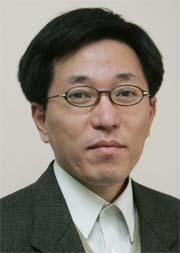 |
Fewer and fewer people care about the situation, however. It looks like the possibility of a peaceful solution is shrinking along with public concern. It is not as if the problem is such that a good, compromised solution exists, as there is a problem with all of the alternatives. Can the U.S. base move be called off? What would others say if the base were relocated to their land? Perhaps this is why it now looks as if a lot of people are ready to ignore the problem. In their minds, they just hope the government will figure out a way to resolve the situation peacefully. The most logical answer for a capitalist society would be due compensation. However, it is not money Pyeongtaek locals are after. What they want is the right to live on the land they’ve always lived on and to do so peacefully. Someone once asked Kim what he thought about financial compensation. He went on at great length about needing to calculate every last movement of every last joint of every last farmer and the hours and smiles and tears they’ve put into the land there. Indeed, how did the government think it would ever be able to calculate, in financial terms, the lives of farmers there and the land that has supported them? The residents’ attachment to their land is utterly unlike what those that want to build weekend getaways feel when they look at wide open spaces in the countryside. It is not what is felt by people that continually inflate real estate prices in Gangnam, nor by those that roam from coast to coast looking for more land to buy. The desperation of someone trying to keep the land that has sustained him cannot be compared to the desire of some to own more than they already have. By the looks of it, the minds of farmers in Daechuri might best be compared to the "common people," who still hold the futile dream of owning their own homes while agonizing over monthly rent payments. I don’t know how to resolve the question of Daechuri, but what I can say for sure is that the place is certainly not a world away from the lives of everyday people in the rest of the country. [englishhani@hani.co.kr]





